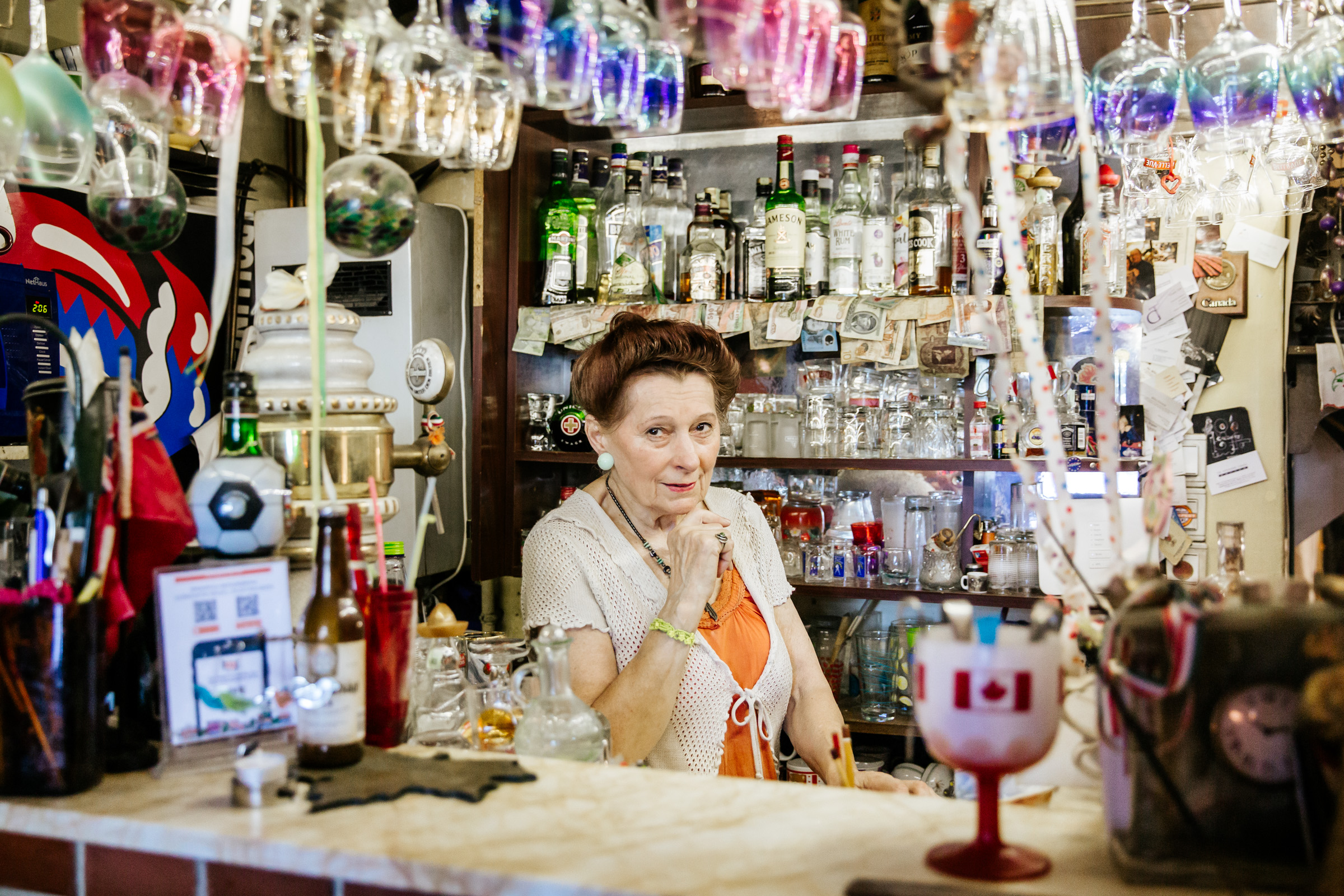Many places in Budapest don’t change for decades. If you walk through the door after 20 years, the same vibe awaits. Many of these iconic spots have been swept away by time or transformed to meet contemporary demands. For the past 27 years, however, Calgary on Frankel Leó út and its owner, Viky, have been welcoming dedicated regulars, actors, musicians and artists. Now this seen-it-all former model is bowing out, leaving Budapest just that little bit poorer.
Calgary is not easy to spot. There’s no inviting neon sign above the entrance, no terrace or gate out front. As the place only opens in the evening, it doesn’t even allow passers-by to pop in and escape the heat. The full name of the place – the Calgary Antik Drinkbár – is a time warp in itself, as no one has named their bar like that for 20 years. The homely, cramped atmosphere, the hundreds of trinkets and knickknacks on the walls – all collected by owner Viky over the years – give the place its special atmosphere. If you wanted to inspect each one, it would take hours to study the lot filling this two-floor drinkery. The most original element here, however, is undoubtedly Viky herself.
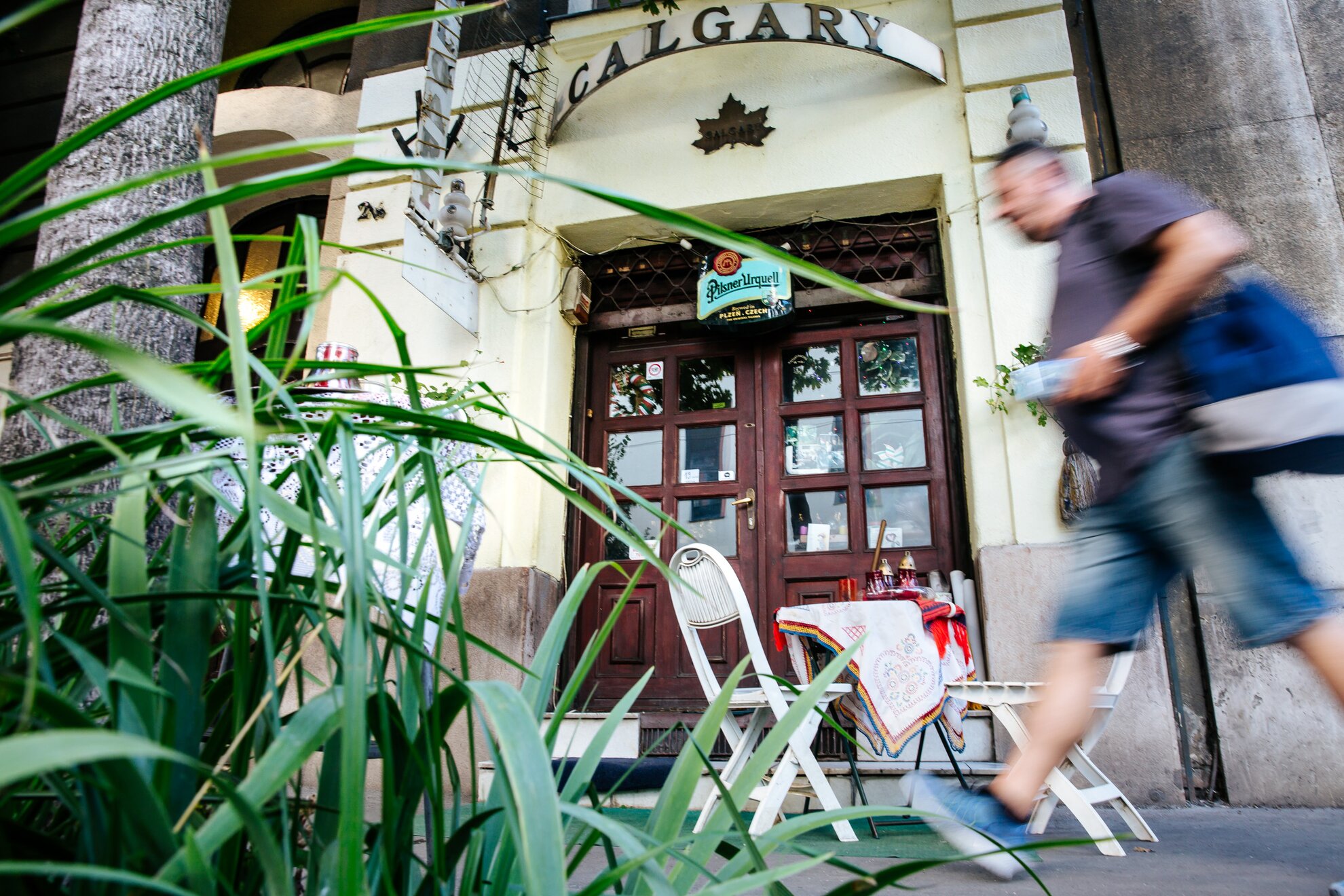
It would have been rude to have asked her age but she did quite a bit of modelling in the 1960s and ’70s, and had minor roles in a few Hungarian films. Her performance today remains regal and stylish, the kind of landlady you’re happy to chat with over a bar counter, just to tell us a few colourful episodes from her rich life.
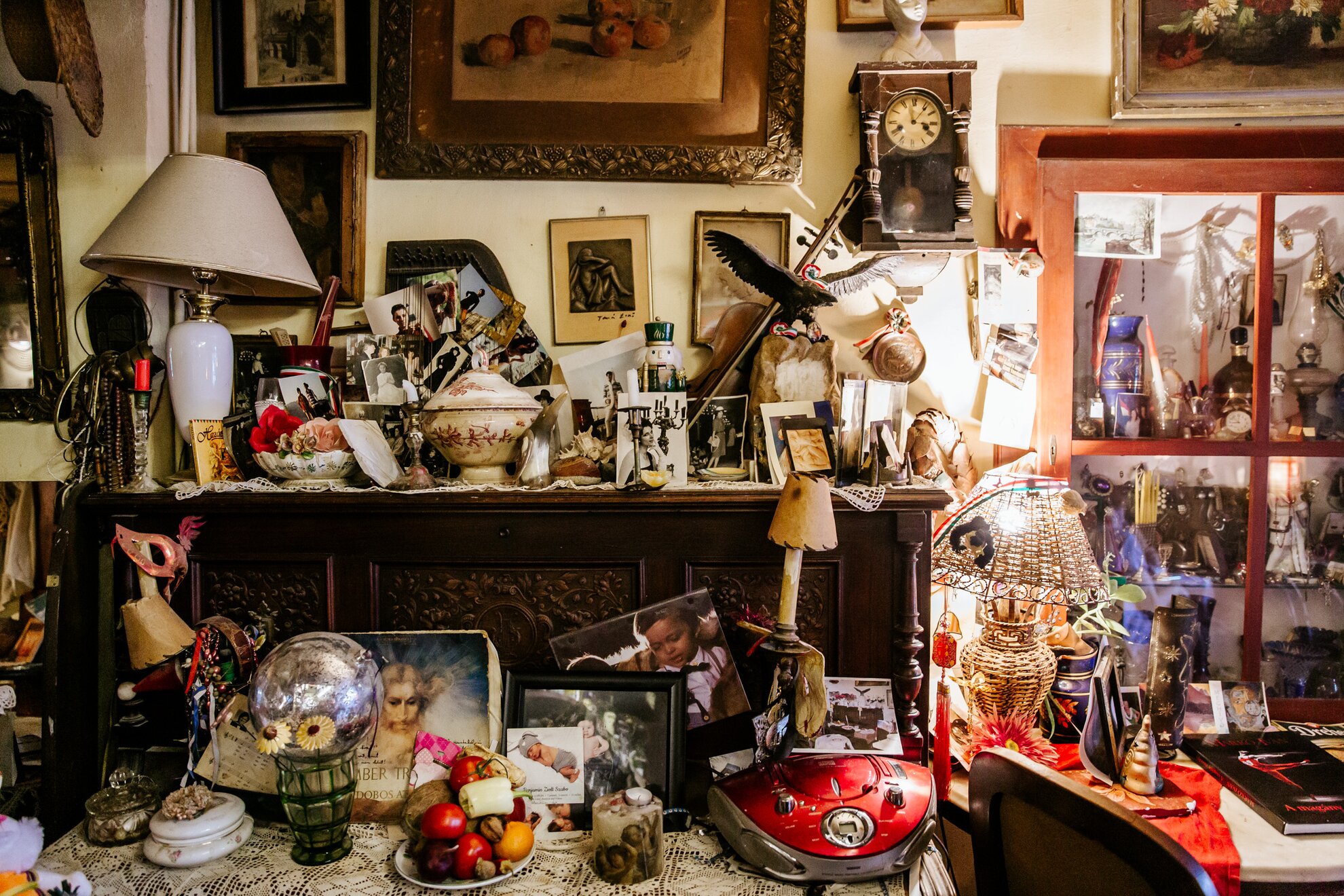
We Love Budapest: How did you start modelling in the ’60s?
Viky: My Christian name was Mária, but when I started modelling, there was so many in the profession that I used the artistic name of Viky Szabó after my husband, Dr Viktor Szabó, who everyone knew. I grew up with my grandparents in Zirc until I was six when my mother brought me to Budapest. I went to school here, too, but whenever I could, I went back to Zirc to see my grandparents. I loved the Bakony area, it was just wonderful. I would talk a lot about it with singer/songwriter Tamás Cseh.
After graduation, at my first job, my boss made his presence known among the models, a couple defected to the West, but this particular slender girl stayed here. There was some kind of exam on Mérleg utca, I remember, and me, Mari Csató and Jancsi Albertini got the highest points. Work didn’t come straight away, I had to show my face everywhere, but it started slowly, but I always had more filming. I almost got into acting as well, as I’d won a lot of recitals at high school. I was already married when I was approached for a role at the Madách Theatre, a small part alongside László Mensáros and Jácint Juhász. In the end, I became pregnant with my daughter, so that was my budding acting career over with.
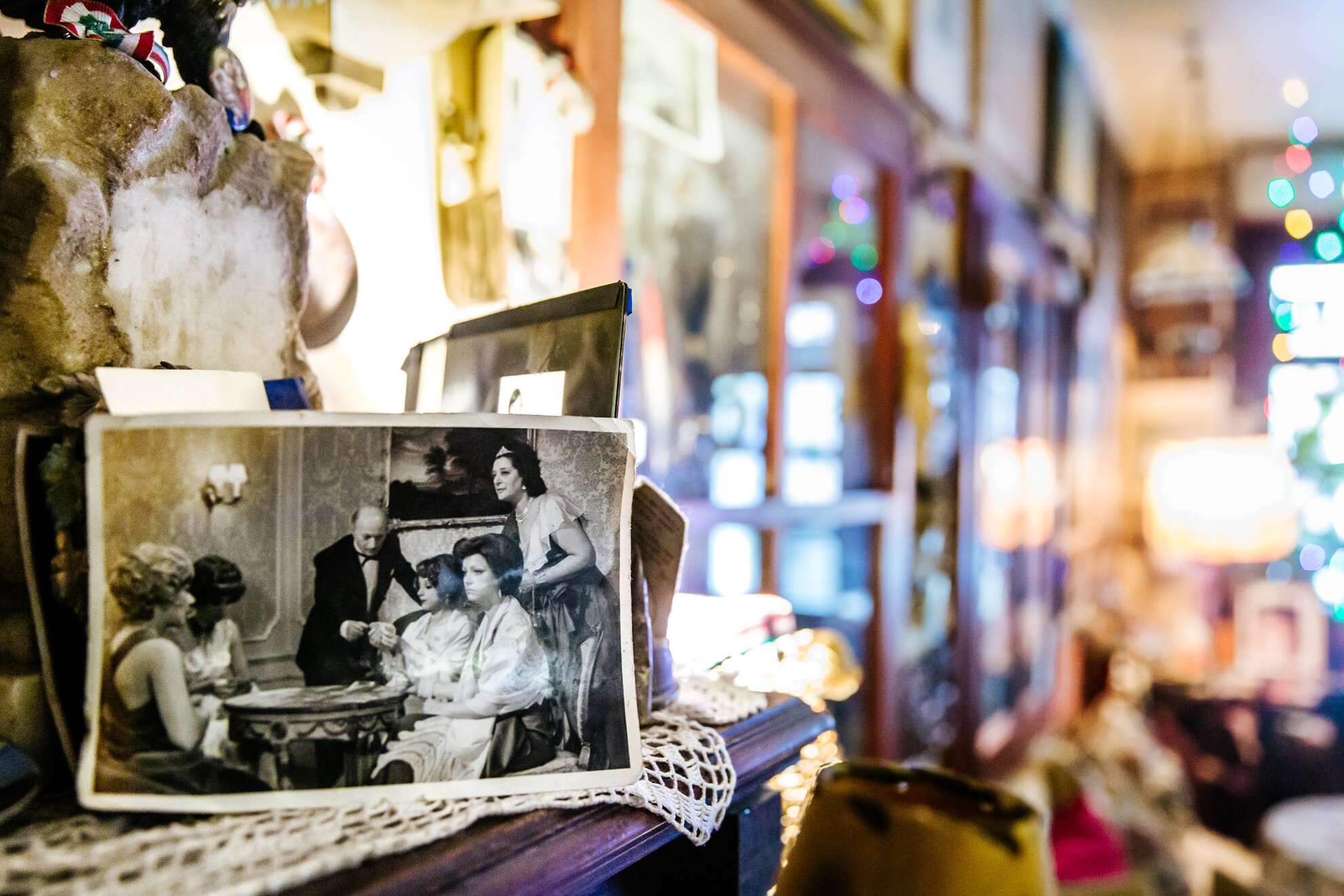
WLB: What was this era like, share a few memories with us!
V: Although I had a regular eight-hour job, I also did modelling, even when I was home with my two kids for five years. I have wonderful memories. The famous comedian Géza Hofi performed with us, Imre Antal, Juli Kudlik were the MCs... I am always thinking about writing a book, I worked with so many wonderful people, Mensáros, Ruttkai, Latinovits, László Márkus, Sinkovits…Not for my sake, but I should write a book for them as so many silly things get published. I had bit parts in loads of films, a Csárdáskirálynő, a Bűbájosok, Tűzoltó utca 25, Egy óra múlva itt vagyok, Fekete Gyémántok, I can’t even remember the others. I was Anna Moffo’s double in Csárdáskirálynő, she didn’t like to play the night scenes. Everything went fine but her slippers were much smaller, so the famous actor Zoltán Latinovits would shout to the gophers, ‘A pair of 45 slippers for Viky’. I wasn’t even a 45!
Zoli and I got on very well, the poor man had to deal with three heart attacks – in the film 141 perc a befejezetlen mondatból he had another scene that we didn’t shoot, they were bringing him out of the hospital. His partner, actress Éva Ruttkai, didn’t even want him to work, he was taking medicine, and I’m convinced that he didn’t want to do himself any damage, he just jumped in front of that train — he used to be so slow as a child – and then that tragedy happened. He had so many plans, we never believed he had it all planned.
While I was a model, we travelled a lot, we were in Moscow and Leningrad. I also worked in publicity at the Castle Theatre – if they said in the afternoon that four tickets had been returned, then I sold them before the performance started.
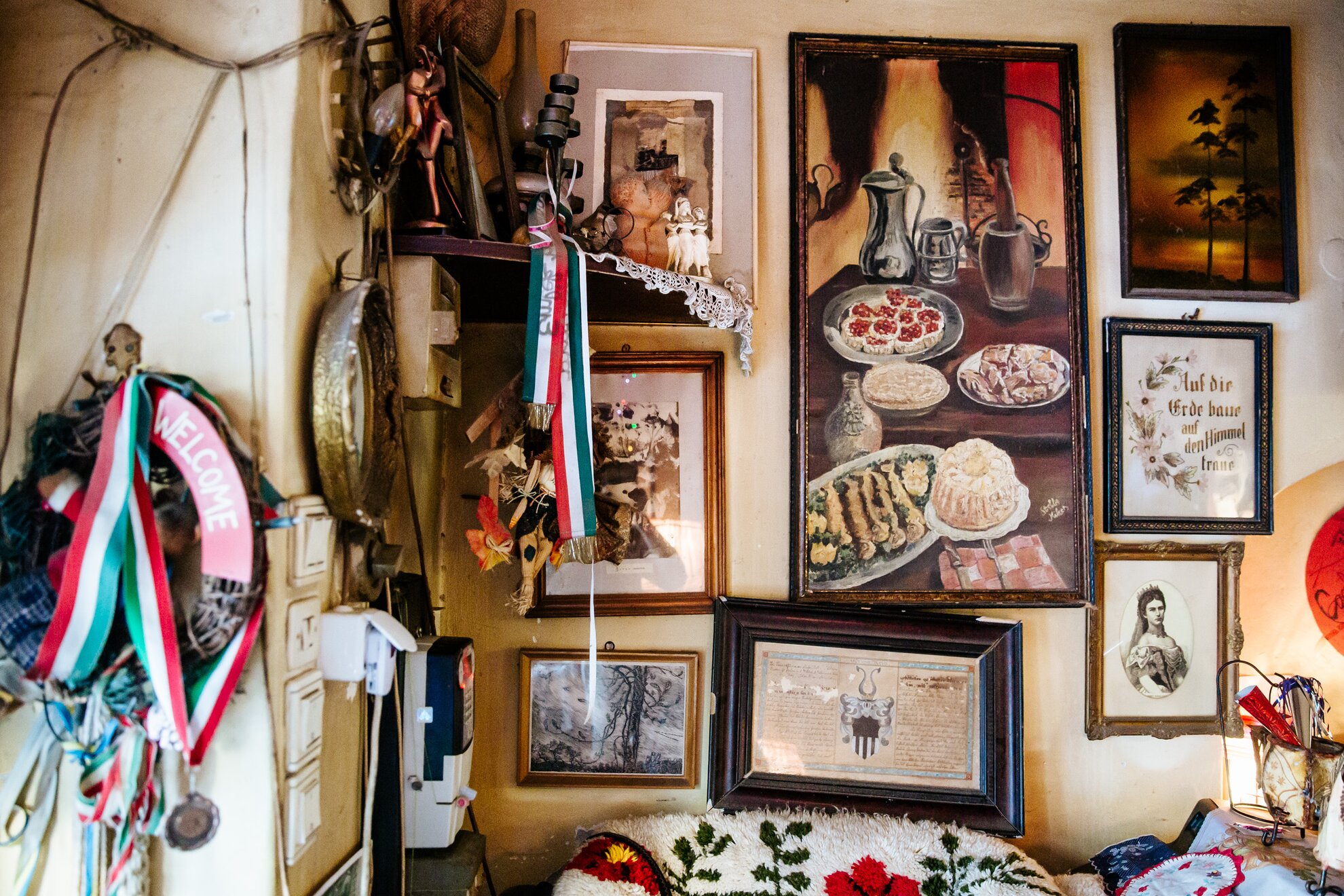
WLB: How did Calgary come about?
V: I’d never worked in hospitality before – just here and there on the odd occasion. I would drop in behind the bar at the Rege Hotel, organised events and whenever one of the girls was ill, I went in to serve a few drinks. I also worked a bit at the Arany Mokka up Castle Hill.
Me and my second husband had many friends, a marquetry artist, a painter, a ceramicist, and they were struggling with serious financial problems. I thought it would be good if they had a nice little place to eat, drink and sell their stuff to help them out a little bit. In the late ’80s, here, a few streets down next to Patyolat, I opened a small secondhand shop called Viky Bizi. I did it for seven years, it was great, you could get clothes, pictures, old jewellery, all sorts of things.
Sándor Kerekes, who had been to the Winter Olympics, popped in and told me about Calgary, what it great place it was, how safe it was, people were honest... And how they and their friends were searching for someone’s farm in the snow for two weeks, plus you could bathe in the outdoor springs there... I liked it so much, that’s why the place became Calgary. It was a disused locksmiths’ workshop, The Patyolat closed around 1988 and I had to leave, then they found this cellar, I took a look at it and bought it.
Loads of good places closed in Buda around the change of régime. The Tabáni Kakas, the Kis Buda, the Balázs Vendéglő, the Malomtó Vendéglő, the Paksi Halászcsárda, the Hársfa, the Veronika Vendéglő, Budagyöngye Bar, where people went to eat, drink, dance after the theatre. I wanted a place like this.
Halfway through the first few weeks, Andriska Fáy came here one winter’s day, sat down at the piano and started to play, so I took him on. Many people came here because of the famous guests and artists. And then my old friends came from the theatre, those who were still alive, because by then the great old generation had faded away. Poor Andriska was already in pretty bad shape, we set him right again, he sorted himself out, and a lot of people came because Fáy was playing again. But others came here as well – I was thinking about it just the other day. Iván Fenyő, Fábry, Albert Györgyi, István Bubik, Andris Hajós, Sándor Bródy... I have all kinds of friends because I’m not afraid to talk about anything, to speak the truth to their face.
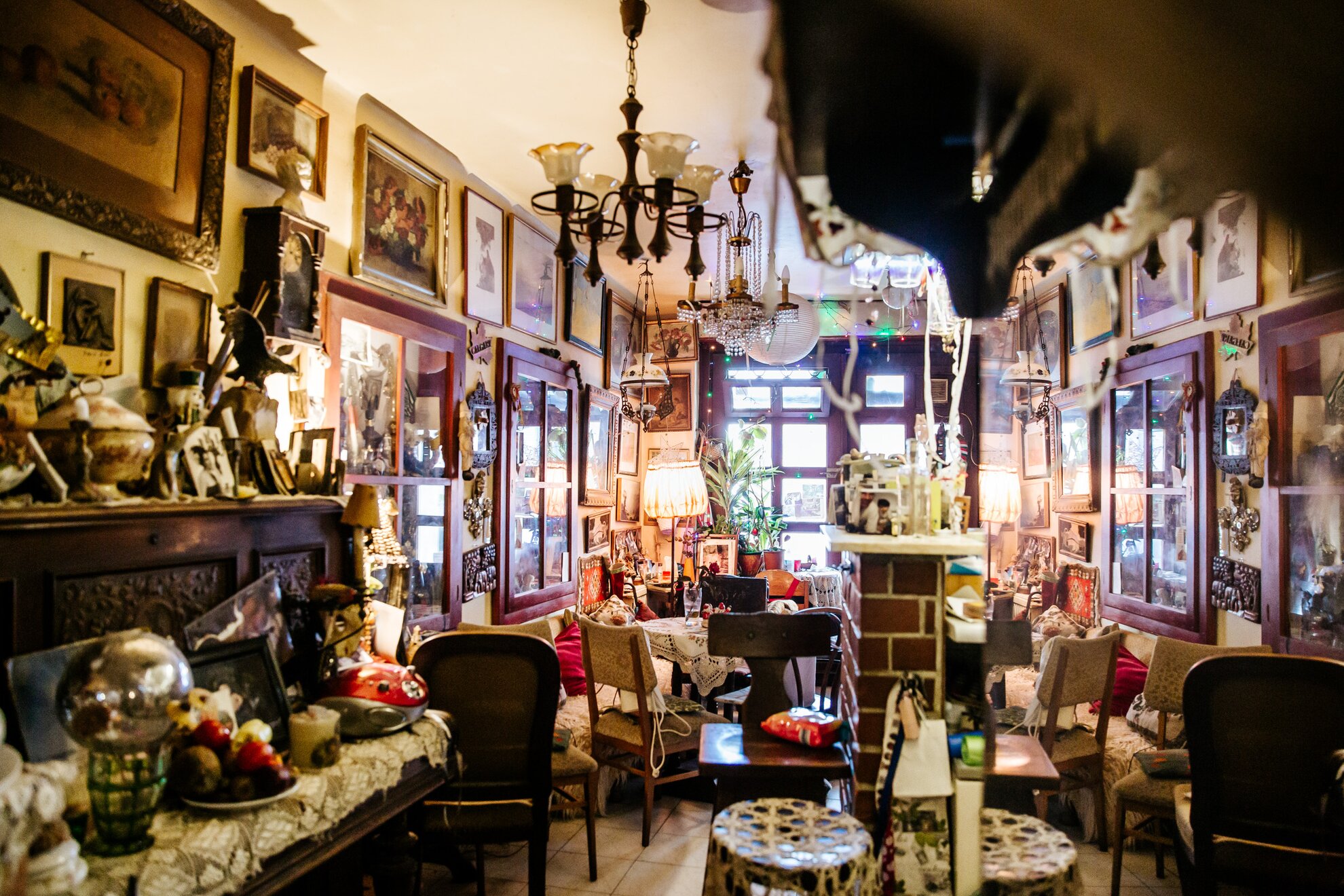
WLB: What is the situation with Calgary now?
V: I’ve been running this place on my own for 30 years now, I’ve had help, but I pretty much did everything, mixed the drinks, spread the sandwiches – there are always goose-fat and spicy-cheese ones. A couple of guys came in late one night, asked for goose-fat sandwiches then didn’t have the money to pay for them – but I wouldn’t leave them hungry.
Anyway, in the end, I had to take out a loan three times, one of them set against Swiss francs. I had to take another out just to pay that last one they cheated me with, I just didn’t notice how high the interest was. But now we’re suing, I have a good lawyer.
But people are very good, everyone comes to see how they can help, they know this is place is my life, my home. And then came the pandemic. Now we’re waiting to see what happens.
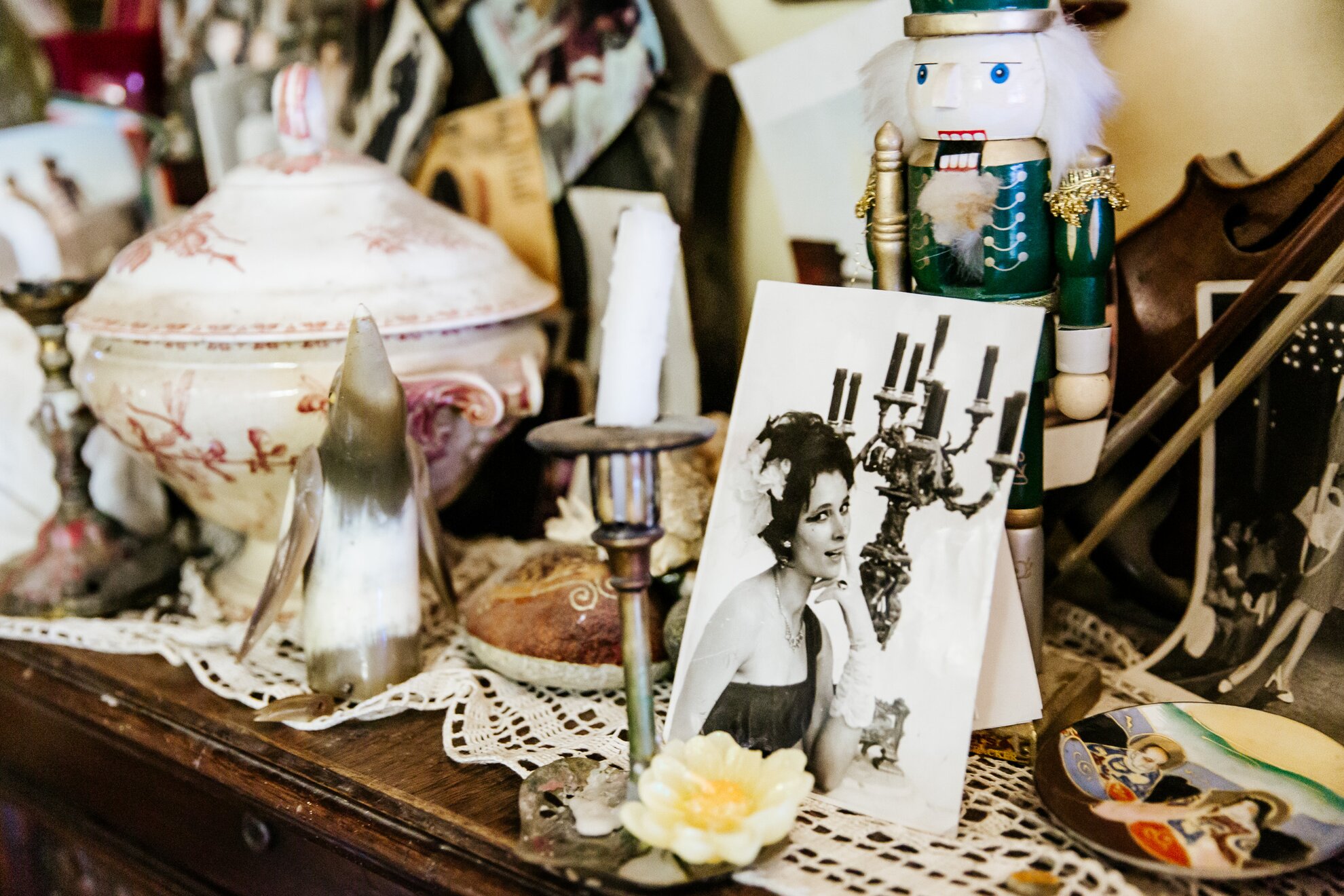
Calgary Antik Drinkbár
District II. Frankel Leó út 24
